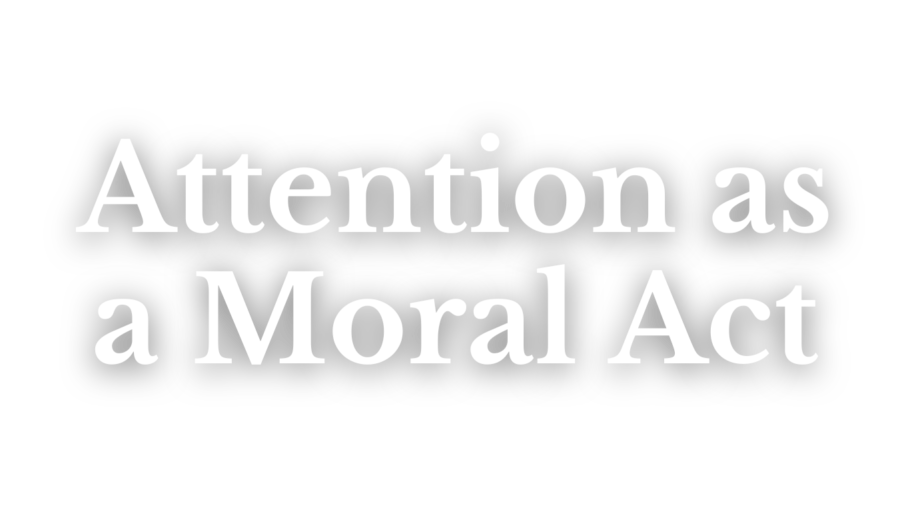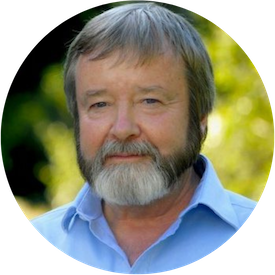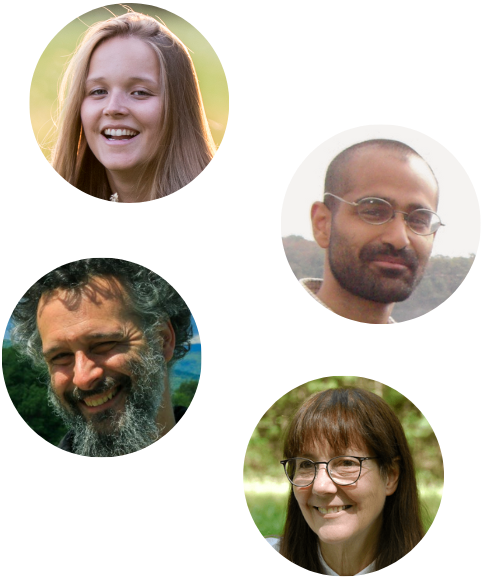

Iain McGilchrist’s new masterpiece, The Matter with Things, has been described by Charles Foster of Oxford University as “one of the most important books ever published.”
A profound meditation on life’s deepest questions, it has far-reaching implications for our understanding of reality, our view of ourselves, and the deep stories on which our civilisation rests.
In this free event series, Perspectiva brings Dr. McGilchrist into dialogue with a range of inspired thinkers to probe further into the key ideas and their significance to this historical moment.
You are warmly invited to join. Sign up below!
Rupert Read is an Associate Professor of Philosophy at the University of East Anglia, an activist, and formerly a spokesperson and strategist for Extinction Rebellion. His work focuses on the intersection of philosophy and environmental issues with a particular emphasis on the precautionary principle – arguing for preventative action in the face of potential catastrophic threat to the natural world even in the absence of complete scientific certainty.
He is the author of several books including This Civilisation is Finished, Parents for a Future and Why Climate Breakdown Matters, and has published two essays with Perspectiva – one as a co-author alongside Anthea Lawson titled “Activism, the very idea… Is the concept of activism itself a key block to mass action on climate?” And another titled “What next on climate? The need for a new moderate flank”. This second essay gave rise to a new organisation dedicated to initiating a mass movement for climate action – The Climate Majority Project of which Rupert is co-director. The CMP is now launching: www.climatemajorityproject.com
In this conversation Iain and Rupert will explore the philosophy laid out in The Matter with Things, as well as exploring the implications of the hemispheric hypothesis for how we respond to this historical moment and the ongoing destruction of the biosphere. This promises to be a fascinating and important conversation.
True learning, growth, and transformation come from being in relationship with others who are also at the edge of their explorations. For this reason, alongside these conversations, we’re hosting fortnightly Connection and Inquiry Sessions facilitated by Perspectiva Associates Leigh Biddlecome and Michael Bready.
These Connection Sessions will give you the opportunity to connect and reflect with others on the significance of the ideas shared in the previous weeks’ conversation.
The sessions will begin with embodied and relational practices to enable genuine human-to-human encounters, before journeying into authentic conversations in both breakout rooms and in the whole group.
In Spring of 2023, we’ll hold an ongoing series of events deepening the inquiry into The Matter With Things.
These conversations will involve a range of inspiring guests: Iain will be joined by the philosopher of education Zak Stein, the Imagination Activist Phoebe Tickell, the philosopher and Insight Guide Bonnitta Roy, and the theoretical physicist Philip Goyal – with more to be announced soon.
These conversations will explore such themes as collective (in)sanity, valueception, the application of imagination to rebuilding the world, and what the hemisphere hypothesis can reveal about theoretical physics.
Sign up below to keep up-to-date with news of future events:

Past events in this series
Our first event will feature Iain McGilchrist in conversation with Jonathan Rowson.
Jonathan Rowson is the Founding Director of Perspectiva, a chess Grandmaster and philosopher.
In this conversation, Jonathan and Iain will examine the relationship between the brain and the world, the centrality of attention, and in particular, consider the question: “Is the way we attend to the world itself a moral act?”
Zak Stein is a writer, futurist, philosopher of education, and co-founder of The Civilisation Research Institute, The Center for Integral Wisdom, and Lectica Inc.
In his own words, he works ‘to bring a greater sense of sanity and justice to education.’ Zak has taught graduate students at Harvard and advised technology start-ups, but he is also a long-time meditator, musician, and caregiver, which, he says, have shaped him more than any professional engagements.
Zak is also an Associate at Perspectiva, where he advises us in a range of ways and has had several essays published, including Education is the Metacrisis and Education must make History Again. Near the beginning of the Pandemic, he wrote Covid 19: A War Broke Out In Heaven for our Emerge website, which has been read by many thousands of people and widely discussed.
Iain and Zak plan to focus their discussion on the nature of value, asking questions such as “what are values, where do they come from, are they important, and if so why?” They will consider the possibility that values are fundamental to the nature of the cosmos. And alongside this, they will explore Max Scheler’s concept of valueception – the idea that we can directly perceive value underived from any cognitive calculation.
Bonnitta Roy is an award winning author, philosopher and insight guide. She currently runs the Pop-Up School, an innovative online educational platform, and has previously held esteemed posts as a Professor in Residence for the MA in Consciousness Studies and Transpersonal Psychology at the Graduate Institute, and as an Associate Editor of Integral Review. Bonnitta is also an Associate at Perspectiva, collaborating and advising us on myriad projects.
In this conversation, Bonnitta and Iain will focus their conversation on the following question: “Will future generations look back on our historical epoch as a time of collective insanity, and if this is the case, what can we do to address this?” In particular they will explore this layered inquiry with reference to the importance of embodiment – the need to put the mind back into the body, and the body back into nature; as well as the need to revise our fundamental assumptions about the nature of reality if we are to find our way back to collective sanity.
Phoebe Tickell is a biologist, systems thinker and founder of Moral Imaginations – an organisation driving a movement of imagination-powered activism, placing life back at the centre of the economy, politics and systems of governance. Phoebe works across multiple societal contexts and has advised government, the education sector and the food and farming sector. Most recently, she has worked with Camden Council to train council officers in the skills of collective imagination and horizontal leadership.
In this conversation, Phoebe and Iain will explore imagination as a way to remake the world. In particular, they will consider how imagination and intuition can be complementary to reason and rationality; how imagination can be a way to make sense of reality; and how imagination can be in service to morality. This conversation promises to be an engrossing encounter as Iain and Phoebe discuss the theoretical implications and practical applications of imagination in light of the hemisphere hypothesis.
Isabela Granic is a researcher, teacher, author, and designer working across sectors to promote human flourishing. She runs the Games for Emotional and Mental Health (GEMH) lab, a multidisciplinary research and development lab for designing and testing digital play experiences for mental health and thriving. Isabela recently left full-time academia to develop coalitions between industry and academia and to teach bright, kind, and soulful seekers how to build creative collectives that can tackle the world’s meta-crisis.
In this conversation, Isabela and Iain will consider how the next generation of young people can respond to the unraveling of the world. They will consider how a deep understanding of the divided brain made whole again has profound implications for stitching a divided world back together, and what kinds of collective action are required. They will consider practices that enable young people to switch back and forth between intellect and intuition and how to apply that flexibility to the development and integration of their own personal goals, their community needs, and the needs of a diverse world.
Philip Goyal is a theoretical physicist and Associate Professor at The University of Albany, studying open foundational questions in physics and related fields. His work has led to the proposal that identical quantum particles manifest a new kind of complementarity – a complementarity of persistence and non-persistence. More broadly, he sees our physical theories as providing a window into the relationship between thought and reality. In this respect, he is interested in how and why we reflect physical reality in thought in the ways that we do, as well as investigating the limitation of thought in capturing the richness of physical reality.
In this conversation Philip and Iain will consider why the mechanistic conception of reality holds such sway over the minds of scientists. They’ll explore how metaphysical reflection and a deeper understanding of the workings and biases of the human mind – as well as meditative and contemplative practices – can help scientists see reality afresh. This promises to be a compelling discussion as Iain and Philip explore how the hemisphere hypothesis might help us better understand reality at a profound level.
Ameer Shaheed is a transdisciplinary member of the international development world. A scientist, development consultant and artist, he works increasingly along the intersection between these fields. His academic background is in environmental public health, with a focus on water and sanitation. More recently, he has been exploring various approaches to advancing water, health, and peacebuilding through active engagement with arts and culture. He has worked with academia, NGOs, and multilateral institutions, with experiences in South and South-East Asia, as well as East, Central, and West Africa.
In this conversation, Ameer and Iain will explore how the dominance of a certain kind of attention – linear, quantitative, rational analysis, – and a certain worldview – reductive materialism – may limit and even hamper our efforts to address complex global challenges. They will reflect upon the dominant mindset and frameworks through which we currently approach these issues, and consider how we might move towards a more balanced approach. The conversation will be grounded in Ameer’s perspectives and experiences in a number of settings linked to public health and international development.